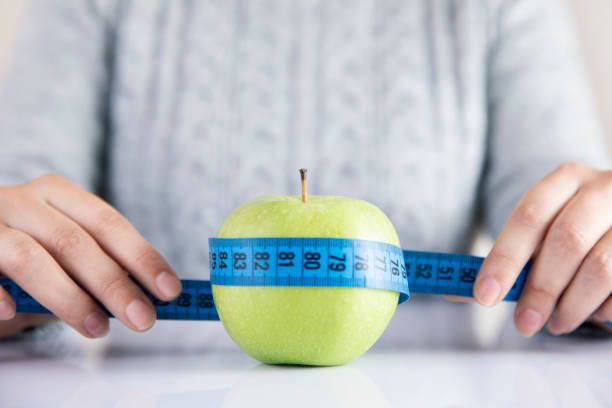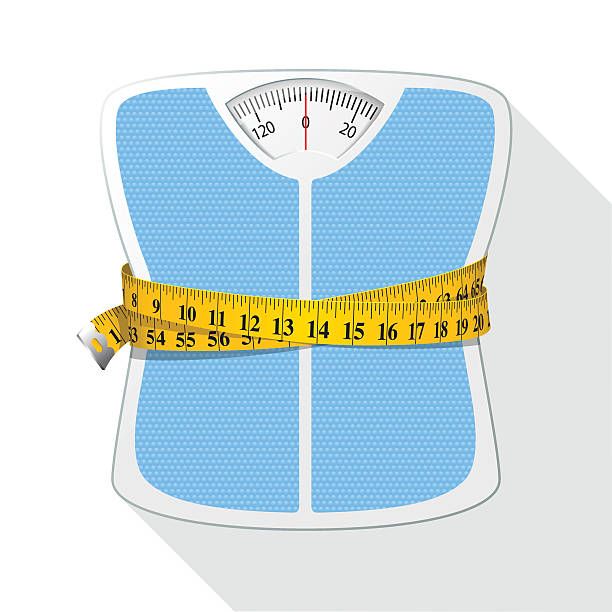I. Introduction
Calorie Calculators – In the health and fitness world, where information is abundant and often overwhelming, one tool stands out as essential: the calorie calculator. Understanding your body’s energy needs is critical to any successful fitness journey. Calorie calculators have become indispensable, helping health-conscious individuals make informed nutrition and overall wellbeing decisions. This comprehensive guide will explore the intricacies of calorie calculators, breaking down the science behind them and empowering you to take charge of your health.
II. What Are Calories and Why Do They Matter?
Calories are the energy units that fuel our bodies. Understanding the energy balance—calories consumed versus calories burned—is fundamental to maintaining a healthy weight and lifestyle. Whether you’re trying to lose, keep, or gain weight, comprehending the calorie basics is your first step toward a healthier you.

III. How Calorie Calculators Work: The Science Unveiled
A. Basal Metabolic Rate (BMR) and Its Role
Basal Metabolic Rate (BMR) represents the calories your body needs to maintain essential physiological functions at rest. It’s the energy your body expends to keep your heart beating, lungs breathing, and organs functioning. Calculating your BMR forms the foundation of any effective calorie management plan.
B. Physical Activity Level (PAL) and Its Influence
Your Physical Activity Level (PAL) indicates the number of calories you burn through physical activities. Your PAL factor significantly impacts your total daily energy expenditure from sedentary (little or no exercise) to highly active (intense training and a physically demanding job).
C. The Thermic Effect of Food (TEF)
Every time you eat, your body burns calories to digest, absorb, and process nutrients. This phenomenon, known as the Thermic Effect of Food (TEF), varies based on the types of foods you consume. Proteins, for instance, have a higher TEF than fats or carbohydrates, making them valuable in calorie-conscious diets.
IV. Choosing the Right Calorie Calculator for You
A. Popular Calorie Calculator Apps and Websites
There is no shortage of calorie calculator tools online, each offering unique features catering to diverse user preferences. Some notable options include MyFitnessPal, Lose It!, and Cronometer. These apps simplify tracking your calories, making it easier to achieve your health goals.
B. Factors to Consider When Choosing a Calorie Calculator
When selecting a calorie calculator, consider your fitness goals, dietary preferences, and activity level. Some calculators are specifically designed for weight loss, while others focus on muscle gain. Choosing one that aligns with your objectives ensures a more tailored and practical approach.

V. Utilizing Calorie Calculators Effectively: Practical Tips and Strategies
A. Tracking Your Progress: The Importance of Consistency
Consistency is the key to progress. Regularly monitor your food intake and physical activity. Calorie calculators are most effective when used consistently, allowing you to make data-driven adjustments to your diet and exercise routines.
B. Integrating Calorie Calculations with Meal Planning
Plan your meals around your calorie goals. Use the calculator’s recommendations to create balanced meals with essential nutrients within your calorie limits. Meal prepping based on calculated values saves time and ensures you stay on track with your dietary objectives.
C. Overcoming Challenges and Pitfalls
Social gatherings, emotional eating, and cravings are common challenges when managing calorie intake. Learn to navigate these situations mindfully. Have a strategy, such as opting for healthier choices at parties or practicing mindful eating to address emotional triggers.
VI. Beyond Calories: The Holistic Approach to Health and Fitness
In pursuing a healthier lifestyle, it’s vital to recognize that good health extends far beyond calorie counting. Embracing a holistic approach nurtures your body and fosters a profound sense of well-being and vitality. Here’s a closer look at the critical components of this holistic approach to health and fitness:
A. Regular Physical Activity: The Foundation of Vitality
Engaging in regular physical activity is the cornerstone of a healthy life. Exercise burns calories and strengthens your cardiovascular system, improves muscle tone, and enhances flexibility. It releases endorphins, the body’s natural stress relievers, promoting a positive mood and reducing anxiety. Aim for cardiovascular exercises like walking, running, or cycling, along with strength training exercises like weightlifting or yoga. Finding activities you enjoy ensures consistency and makes staying active a pleasure rather than a chore.
B. Prioritizing Mental Wellbeing: Nourishing the Mind and Soul
Maintaining good mental health is as important as taking care of physical health, as anxiety and stress can negatively impact overall wellbeing. Practicing meditation, mindfulness, and yoga can help reduce stress and promote emotional balance. Moreover, engaging in hobbies, spending quality time with loved ones, and seeking professional guidance can contribute to maintaining a positive mental state. Always remember, that a healthy mind is the basis for a healthy life.
C. Establishing Sustainable Lifestyle Habits: Small Changes, Big Impact
Healthy living isn’t about drastic changes but rather about sustainable habits. Incorporate small, positive changes into your daily routine, such as taking the stairs instead of the elevator, choosing whole grains over refined carbs, or choosing fresh fruits as snacks. These seemingly minor adjustments can significantly improve your overall health over time. Avoid extreme diets or intense workout regimens that are difficult to maintain in the long run. Instead, focus on gradual, sustainable changes that become integral to your lifestyle.
D. Balance Your Diet with Nutrient-Dense Foods: Fueling Your Body Right
It’s important to keep track of the calories you consume to manage your weight, but the quality of those calories is just as crucial. It is crucial to maintain a balanced diet that consists of foods that are rich in nutrients. Incorporate fresh vegetables, fruits, whole grains, lean proteins, and healthy fats into your meals. These foods contain essential vitamins, minerals, antioxidants, and fiber, which support overall health and boost your immune system. Also, limit your intake of processed foods, sugary beverages, and foods high in saturated fats and sodium, as they can contribute to various health issues.
E. The Importance of Hydration and Sufficient Sleep: Restoring and Rejuvenating
Hydration is fundamental to every bodily function. Water regulates body temperature, aids digestion, and transports nutrients and oxygen to cells. Aim to drink adequate water throughout the day, especially if you’re physically active. Additionally, prioritize sufficient sleep. Quality sleep is when your body repairs and rejuvenates itself. Lack of sleep affects your mood and cognitive function and hampers your body’s ability to recover and perform optimally. Strive for 7-9 hours of sleep per night, ensuring your body and mind have ample time to rest and restore.
When you approach your health holistically, acknowledging the interconnectedness of your physical, mental, and emotional well-being, you create a robust foundation for long-term vitality. By nurturing all aspects of your health and fitness, you pave the way for a happier, healthier, and more fulfilling life.

VII. Empowering Your Journey to a Healthier You
With knowledge about calorie calculators and their implementation, you can embark on a transformative journey. Remember, it’s not just about the numbers; it’s about understanding your body, making mindful choices, and embracing a lifestyle that nurtures your well-being. Your health journey is unique, and you can achieve your goals with the right tools and understanding.
VIII. Calorie Calculators (FAQ)
Q1: Are calorie calculators accurate?
A1: Calorie calculators provide estimates based on the information you input. While they offer a helpful starting point, individual variations in metabolism and other factors can influence accuracy. Using calculators as guides and adjusting based on your body’s responses is essential.
Q2: How often should I update my calorie goals?
A2: Regularly reassess your goals, especially if you experience significant changes in weight, activity level, or overall health. Revisiting your calorie calculations every few weeks can help ensure you consistently meet your body’s needs.
Q3: Can calorie calculators help with weight maintenance?
A3: Calorie calculators help maintain weight by tracking intake and expenditure.
Q4: Should I consult a professional before relying on a calorie calculator?
A4: It’s always a good idea to consult a healthcare provider, nutritionist, or fitness expert, especially if you have underlying health conditions or specific fitness goals, as they can provide personalized guidance tailored to your unique needs.
Q5: What should my calorie intake be?
A5: Your ideal calorie intake depends on various factors, including age, gender, weight, height, activity level, and overall health goals. Consider using a reputable online calorie calculator to determine a personalized calorie intake. These tools consider your specific details and provide an estimate tailored to your needs.
Q6: How many calories are 30,000 steps?
A6: The number of calories burned through walking depends on weight, speed, and terrain. On average, a person weighing around 155 pounds burns approximately 100 calories per mile walked. Assuming an average stride length of 2,000 steps per mile, 30,000 steps would be equivalent to burning 900-1,000 calories, considering other variables remain constant.
Q7: Are 1,200 calories a day enough?
A7: Consuming 1,200 calories a day can be suitable for some individuals, particularly those with a sedentary lifestyle or those aiming for significant weight loss. However, consulting with a healthcare provider or a nutritionist is essential before drastically reducing your calorie intake. Too few calories can deprive your body of essential nutrients, leading to nutritional deficiencies and health issues. A balanced and varied diet is crucial, even when aiming for weight loss.
Q8: Should I eat 1,500 calories a day?
A8: For active individuals, consuming 1,500 calories daily can help maintain or gradually reduce weight, considering one’s BMR, physical activity level, and overall health. Consult a healthcare provider or registered dietitian for guidance.
Calorie Calculators in Conclusion
Empowered with the knowledge gained from this guide, you have the tools to make informed decisions about your health and nutrition. Remember, while calorie calculators provide valuable insights, overall well-being encompasses more than numbers. By adopting a holistic approach, embracing healthy habits, and staying mindful of your body’s signals, you’re not just managing calories but nurturing a healthier, happier you.
In your journey to better health, armed with the understanding of calorie calculators and a broader perspective on wellness, you’re well-equipped to achieve your goals. Stay consistent, stay mindful, and celebrate every step toward a healthier you.
Read also Healthy Fats: Unlocking the Secrets to a Balanced Lifestyle

